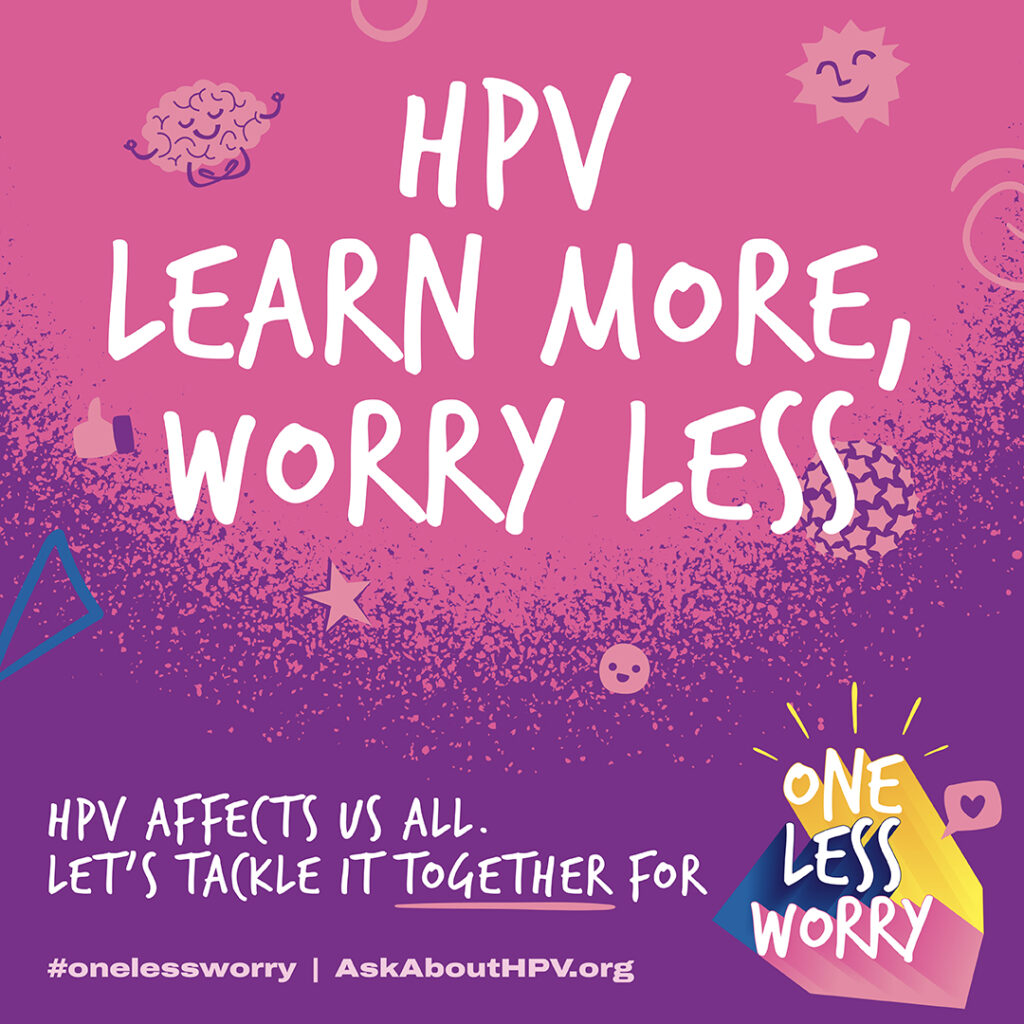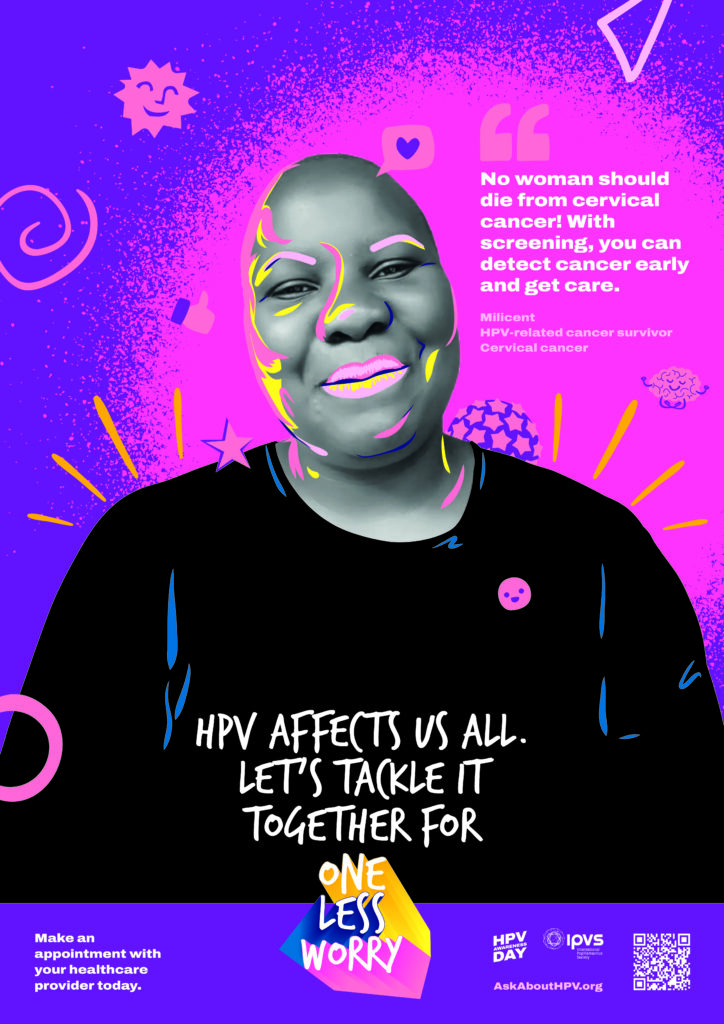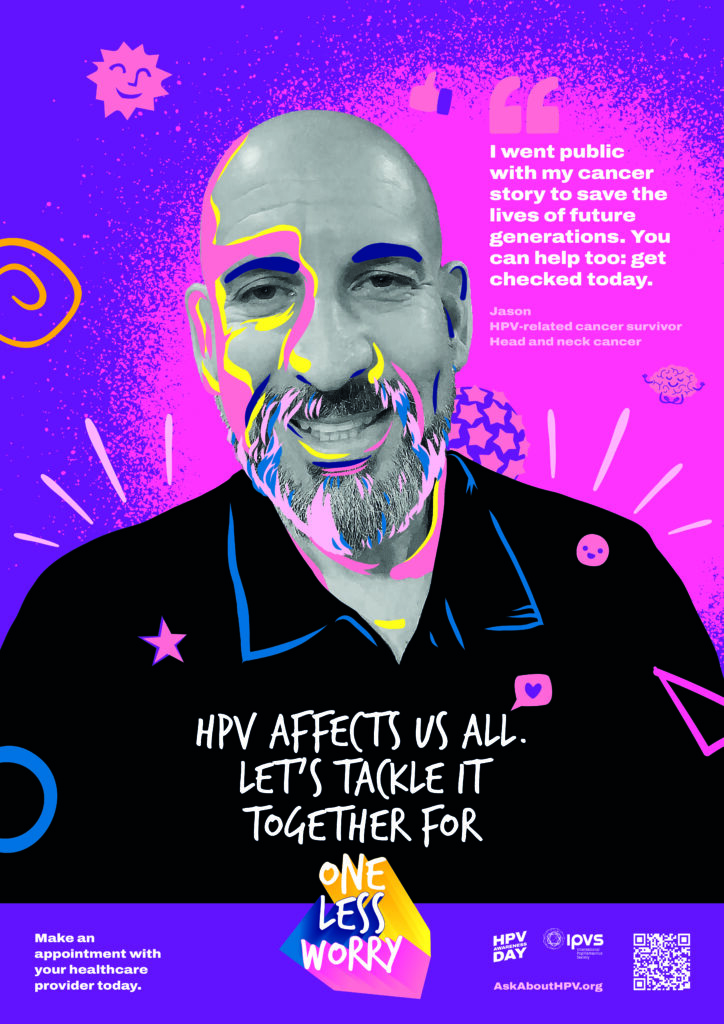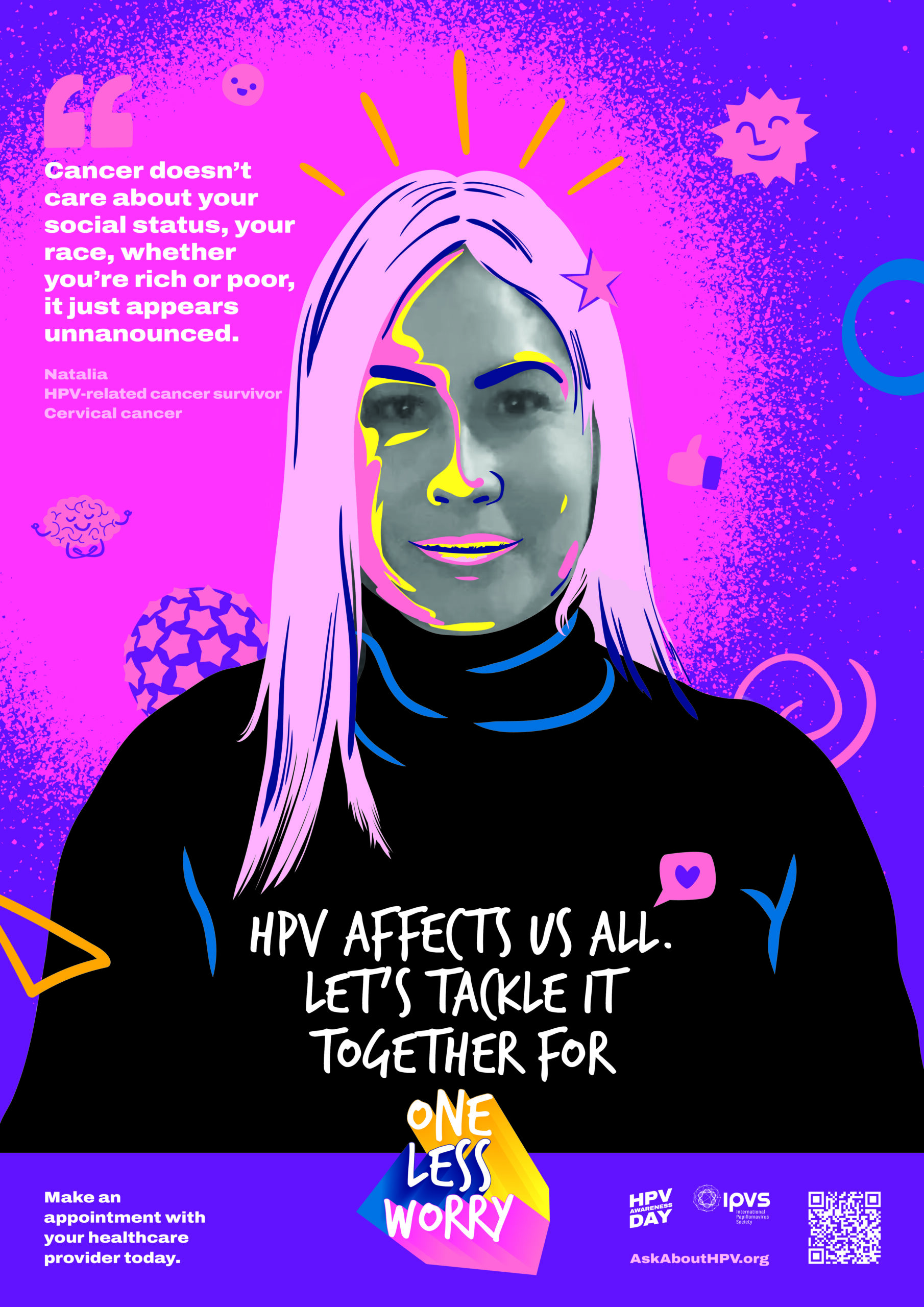
Today, on International HPV Awareness Day, Cervivor, Inc. stands united with individuals, organizations, researchers, providers, and communities worldwide to raise awareness about the Human Papillomavirus (HPV) and its link to cervical cancer.
As patient advocates for cervical cancer awareness, we believe that education, the empowerment of survivor stories, routine screenings, and vaccination are key elements in the global mission to end cervical cancer. We celebrate the progress made and shed light on the collaborative efforts aimed at eliminating HPV-related cancers.
Education as a Shield Against HPV
Education serves as a powerful tool in the prevention of HPV and its associated cancers. At Cervivor, Inc., we emphasize the importance of understanding the risks, transmission, and consequences of HPV. By cultivating awareness, we aim to empower individuals to make informed decisions about their overall health and well-being.
The first step in preventing HPV-related cancers is understanding the virus itself. HPV is a commonly transmitted infection that can affect both men and women. With over 100 different types, some strains are considered high-risk and are linked to the development of cervical cancer. By spreading knowledge about the virus, we hope to break down the stigma surrounding HPV and encourage open conversations.
Empowering Survivor Stories
Behind every statistic is a person, and at Cervivor, Inc., we believe in the power of survivor stories. Sharing experiences helps break down barriers, reduce stigma, and create a supportive community for those affected by HPV-related cancers. Survivor stories serve as a source of inspiration, proving that a diagnosis does not define an individual’s future.



Through our private social media group we provide a safe space for HPV-related cancer survivors to share their journeys, triumphs, and challenges. By amplifying these voices, we aim to empower others, offering hope and encouragement to those navigating their own HPV-related cancer experiences. Together with our community partners, we build a network that stands strong against the impact of cervical and other HPV-related cancers.
Routine Screenings and Vaccination: A Dual Strategy
Routine cervical cancer screenings and HPV vaccination are crucial components of the strategy to eliminate cervical cancer. Screenings, such as Pap and HPV tests, can detect abnormal changes and the status of an active infection in the cervix early on, allowing for timely intervention and preventing the progression of cancer. Cervivor, Inc. advocates for regular screenings as part of a comprehensive approach to cervical health as well as the elimination of the disparities in accessing these life-saving screenings and vaccinations.
Additionally, HPV vaccination is a proactive measure to prevent infection with the high-risk strains of the virus. Vaccination not only protects individuals from certain types of HPV but also contributes to herd immunity, reducing the overall prevalence of the virus in the community. By promoting both routine screenings and vaccination, we take significant steps toward a future where cervical cancer is rare. Check out the most recent study results from Scotland showing that vaccination is working!
A Shoutout to Our Partners at IPVS
Cervivor, Inc. extends a heartfelt shoutout to our incredible partners at the International Papillomavirus Society (IPVS). Their extensive campaign, involving organizations across the globe, has been instrumental in raising awareness and cultivating collaboration to end HPV-related cancers. We are working towards a world where no one has to face the devastating impact of an HPV-related cancer together.
On International HPV Awareness Day, Cervivor, Inc. reaffirms its commitment to educating, empowering, and advocating for those affected by HPV-related cancers. By embracing survivor stories, promoting education, and supporting routine screenings and vaccination, we strive towards the ultimate goal of eliminating cervical and other HPV-related cancers. We stand in solidarity with our partners at IPVS and the global community in the shared mission to make HPV-related cancers a thing of the past. Together, we can create a future where no one loses their life to a preventable disease.